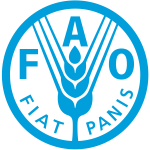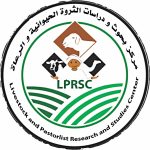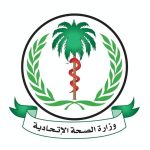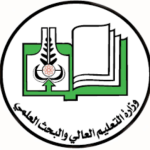About Faculty of Animal Production
Academic Calendar
1. Preparing specialized personnel in various animal production sciences to work in scientific institutions, research centers, and the dairy, meat, leather, and other animal production industries.
2. Advancing and participating in various research activities that contribute to scientific progress in the fields of animal production sciences, livestock development, and conservation.
3. Contributing to the formulation, study, and evaluation of projects and activities related to the livestock sector proposed by planning bodies.
4. Enhancing and deepening the focus on basic and applied research in the field of animal production.
5. Training students academically and technically in a way that enables them to effectively contribute to the formulation and implementation of development plans and programs.
6. Preparing and developing scientific publications and educational books, and contributing to the Arabization and localization of animal production sciences.
7. Establishing extension programs and bodies whose activities reach rural communities, while fostering mutual interaction between the surrounding agricultural environment and faculties of animal production.
8. Keeping pace with scientific advancements and contributing to the development of appropriate technologies.
The Faculty aspires to serve as a distinguished scientific pillar complementing the Faculty of Agriculture, fulfilling a vital part of the University’s mission within Sennar State and neighboring regions. In alignment with the University’s legal framework and objectives, the Faculty seeks to establish itself as a leading academic and research center in the fields of animal production sciences and livestock development.
1. To prepare and qualify students both academically and professionally for Bachelor’s and Diploma degrees in Animal Production, in accordance with the Faculty’s curricula.
2. To promote and support scientific research in the field of livestock.
3. To contribute to the development and sustainability of livestock resources through research and extension activities.
4. To optimize the use of natural resources for enhancing animal production while ensuring environmental protection.
More Information
1. The state and its neighboring regions are home to numerous pastoral tribes that possess substantial livestock, along with diverse land uses such as rain-fed agriculture, irrigated farming, and grazing.
2. The region offers essential foundations and favorable conditions that support the establishment of the college.
3. Teaching tools and resources are available to enhance the success of the educational process.
4. There is strong interest and willingness among the local community to pursue studies in this field.
1. Sudanese Secondary School Certificate – Academic Track.
2. Pass the compulsory subjects: Arabic, English, Religious Education, and Basic or Specialized Mathematics.
3. Pass any three of the subjects qualifying for admission: Biology, Chemistry, Physics.
4. Degree awarded: Bachelor of Science with Honors in Animal Production after five years.
The Faculty includes the following departments:
1. Meat Department
2. Dairy Department
3. Nutrition Department
4. Poultry Department
5. Animal Genetics and Breeding Department
1. Teaching courses accredited by the Faculty Council and the Ministry of Higher Education.
2. Organizing training courses and workshops.
3. Participating in state programs related to animal production.
4. Preparing feasibility studies for researchers in the field of microfinance.
1. Lecture Halls and Laboratories:
The Faculty of Agriculture currently has 10 lecture halls and more than 7 laboratories, which are fully capable of accommodating all students of the proposed college efficiently.
2. Library:
The library covers an area of 1,500 m² and houses most of the textbooks and scientific references in the field of animal production. It also receives scientific bulletins from the Arab Organization. Additionally, students can benefit from the shared library with the Faculty of Agriculture, which contains a large collection of textbooks, scientific references, and journals in animal production and agricultural sciences.
3. Dormitories:
The Abou Naama Complex, which includes the Faculty of Agriculture, provides a sufficient number of dormitories to accommodate students of the proposed college. Currently, the Faculty of Agriculture has 267 students, while the dormitories can accommodate approximately 1,016 students, offering ample capacity.
1. 8 poultry sheds
2. More than 4 barns for cows and calves
3. Dairy barn for cows
4. Feed store
5. A 5,000-acre farm containing cows, sheep .
Note:
All these laboratories, lecture halls, and farms were designed by the World Bank to comply with the standards adopted by the Faculty of Agriculture. The college was originally established to teach animal production and agricultural engineering, and the laboratories and barns have been equipped and prepared accordingly.
About Faculty of Animal Production
Sinnar State is considered a region of significant economic importance in Sudan, particularly in the field of animal production, It is home to some of the largest pastoral tribes in the country, most notably the Kenana and Rufa’a Al-Hoi tribes, These communities play a central role in traditional livestock activities, relying on the breeding of various types of animals to meet both nutritional and economic needs, Sinnar is also distinguished by its diverse animal species, including the renowned Kenana cattle, prized for their strength and adaptability, as well as the Wateesh sheep and a variety of wildlife species, which add ecological and even touristic value to the region.
The state exhibits a wide range of land uses, encompassing rain-fed and irrigated agriculture as well as extensive areas dedicated to traditional grazing practices.
This diversity has led to several challenges and conflicts, particularly after the secession of South Sudan, when many pastoralists from southern states moved to Sinnar and settled in natural forest areas, especially in the Dali and Mazmum regions, Such developments have highlighted the urgent need for proper organization and management of pastoral and agricultural resources to ensure sustainable practices.
For all these reasons, Sinnar provides an ideal environment for establishing a College of Animal Production. The region offers a fertile ground for conducting specialized studies and scientific research aimed at improving traditional animal production systems.
It also presents opportunities for training qualified personnel and advancing research in the field of livestock production. Moreover, the presence of key natural resources, such as Dinder Farm and Sinnar Reservoir, provides strategic sites for practical learning, applied research, and the conservation of biological diversity, further enhancing the academic and practical value of such an institution.




